Inspired at age 9 by a months long voyage down the Mexican coast with her parents at the helm of their sailboat, Liz Clark spent her childhood dreaming of a grand solo seafaring adventure. “I had a map on my wall with arrows of where I wanted to sail,” she remembers. “And a big piggy bank that I’d put change into that was labeled ‘Sailing Around the World Fund.’”
But it was a meeting with retired environmental-studies professor Arent Schuyler, PhD, that helped her dream become a reality. “I was only 21 when this shooting star fell into my lap,” she writes in her memoir, Swell: A Sailing Surfer’s Voyage of Awakening.
With help from Schuyler, Clark purchased and overhauled a 40-foot sailboat. Clark learned how to make repairs and also took a ham-radio course.
But funding the voyage proved to be a major obstacle. Clark had saved some money, but she eventually recruited sponsors to cover her costs. “Patagonia believed in helping one of the first female captains to sail off in search of surf,” she notes.
Initial funds secured, Clark set sail from California in 2006. She was 25 years old.
She faced some challenges in keeping her dream afloat, but she’s since sailed more than 20,000 nautical miles in the Pacific looking for remote waves to surf, learning about unfamiliar cultures, living simply, and reconnecting with nature — and herself.
“Growing up in Southern California, I always felt like I wasn’t good or pretty enough,” Clark says. “This voyage helped me break away from those pressures and helped me explore who I really am and be proud of myself.”
Experience Life | What’s challenging about living a life at sea?
Liz Clark | The uncertainty of the weather! You’re living on nature’s terms and must be vigilant. There are storms, but sometimes the wind picks up at night while you’re in an anchorage and it becomes unsafe and you have to move your boat.
There are physical challenges of living on a boat, too. You have to do things like haul your own water and scrub algae off the hull — and as beautiful as my boat, Swell, is, and despite how much work we did to get her ready, she had problems along the way. So I spent time in boatyards in places where I didn’t speak the language.
There’s also the challenge of being alone. Sometimes I got lonely and had to sort out those feelings and keep going.
Then there’s the added layer of being a woman alone. I think being a woman presents challenges that maybe men wouldn’t have had to deal with in terms of having to stay safe.
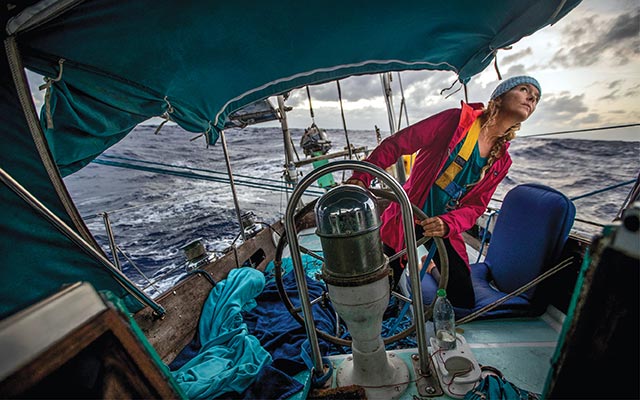
EL | You’ve been to many beautiful places. Are there any particularly memorable ones?
LC | The most impactful place for me is a small island chain in the Republic of Kiribati between French Polynesia and Hawaii. They don’t have a supporting colonizing nation and have to live very simply, surviving and sourcing directly off of nature, including their clothing and building materials.
There was really limited access to the outside world. They had one television set where everybody came and watched a movie from time to time.
What really struck me, though, is how much Americans grow up idealizing individualism, and I always prided myself on being able to do everything on my own — especially with my solo voyage.
But what I saw from the Kiribati people is that this notion is a fantasy. They know they can’t live without one another. So, there’s a beautiful exchange that happens. Everyone has their place in the community. For example, people who are good at building homes do that, but other people are better at other things and that’s what they focus on.
I went away from my visit there with a different understanding of how important it is to help each other and to be part of something greater, and to not look at ourselves as being separate from one another or even separate from nature.
Seeing the Kiribati islanders work together made me realize that our individualistic outlook on the world isn’t serving us in terms of cooperating and solving the climate crisis and other global problems we’re facing.
EL | You’re working with some advocacy groups now. What are you up to?
LC | I’m working with the Changing Tides Foundation, which was founded by a group of my water-women friends. We mostly work out of San Diego but collaborate on projects all over the globe. Our goal is to empower and educate women to protect and preserve their local environments.
Where I’m living in Tahiti, I’m working with A Ti’a Matairea — “A Ti’a” means “stand up” and “Matairea” is the ancient name for our island. Our mission is to create positive change on our island for environmental, animal-welfare, and youth causes.
So far, we’ve organized beach cleanups and a cooperative clearing and cleaning of a public landscape, raised awareness about the problems of plastic pollution, and hosted a climate rally. We’ve rounded up stray dogs and cats and adopted them to homes in California. We’re also working to address the crystal methamphetamine issue on the island.
EL | Has your relationship with nature changed after this experience?
LC | From a young age, I always felt very comfortable and happy in nature. I’m kind of an introvert, so I really need time away, and putting myself in a natural space is a way that I can get grounded and feel energetic again.
When I set off on the boat and found myself surrounded by nature all the time, I grew more and more enchanted, grateful, respectful, and in love with our planet and all these beautiful intricacies that we don’t maybe notice as much if we aren’t in proximity to it all the time.
Now, I see that the love I have for the magic of our planet is my medicine. It’s the place that I can be wild and free and know that nature loves me like that.
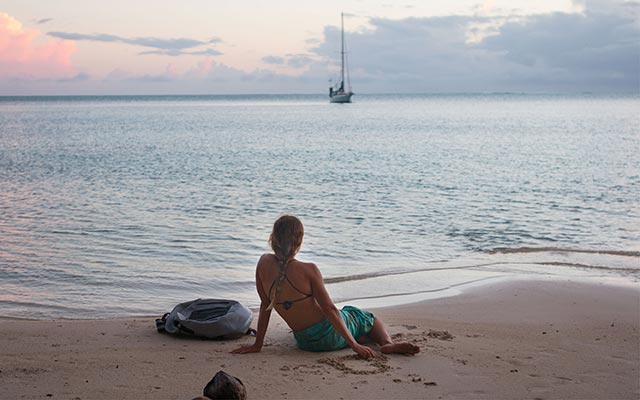
EL | What’s one lesson about your health that you learned from your solo adventure?
LC | Over the years, I realized that health is a combination of so many things and not just about your diet or taking supplements.
Because I was living so remotely, I had to take my health into my own hands. I didn’t always have the option to see a doctor about things, so I had to study and observe myself. I found a lot of value in my own observations and gut feelings.
Before my trip, I got sick from everything and had a very weak immune system. What I noticed was that after changing my diet to mostly plant based with some fresh fish when available, I felt much stronger. But I still struggled with a staph infection.
Then I began practicing the Wim Hof breathing method, which taught me that our breath has such a huge impact on our central nervous system because it’s directly connected to our immune system. Doing this practice helped me realize the powerful link between our emotions, how we feel inside, and the overall health of our body.
The thing that I love about it is that air is free. You just have to breathe and pay better attention to it.
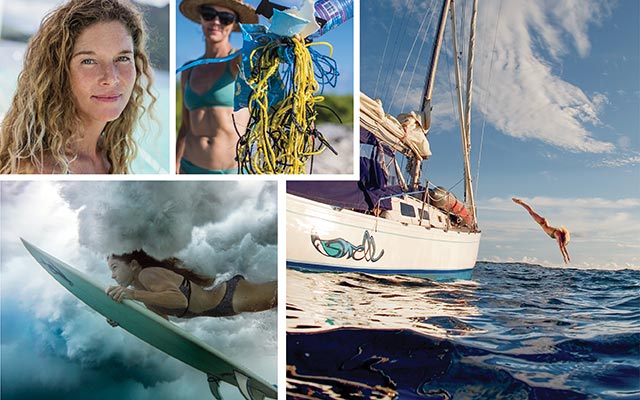
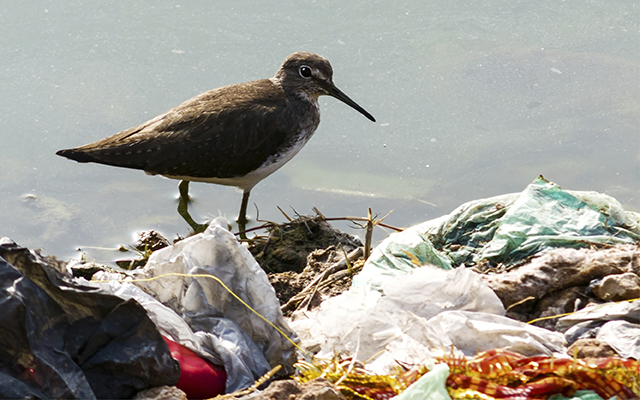
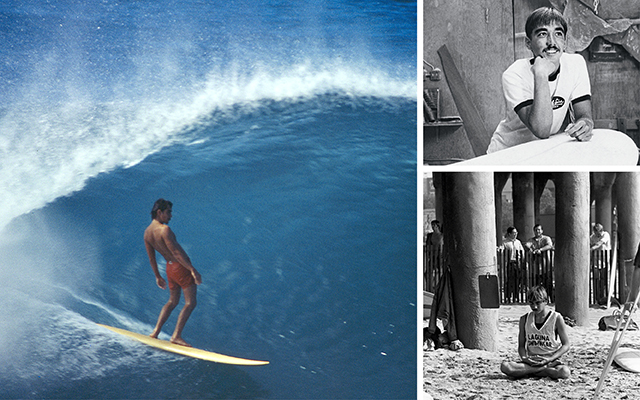
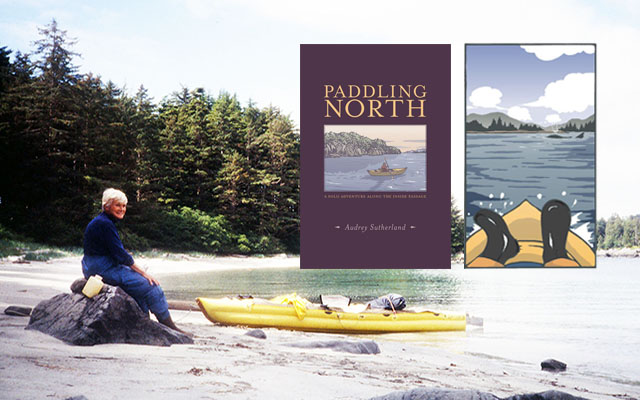
This Post Has 0 Comments